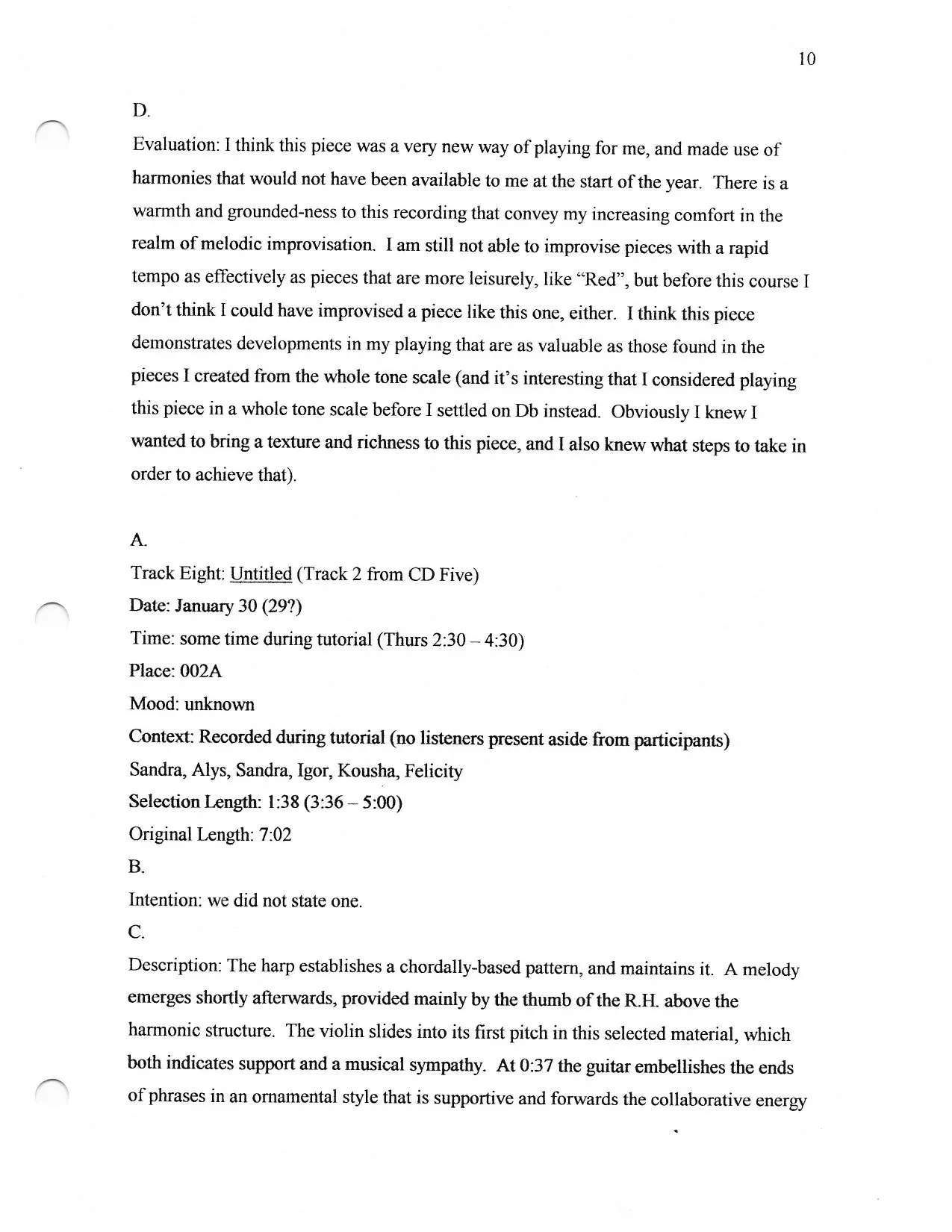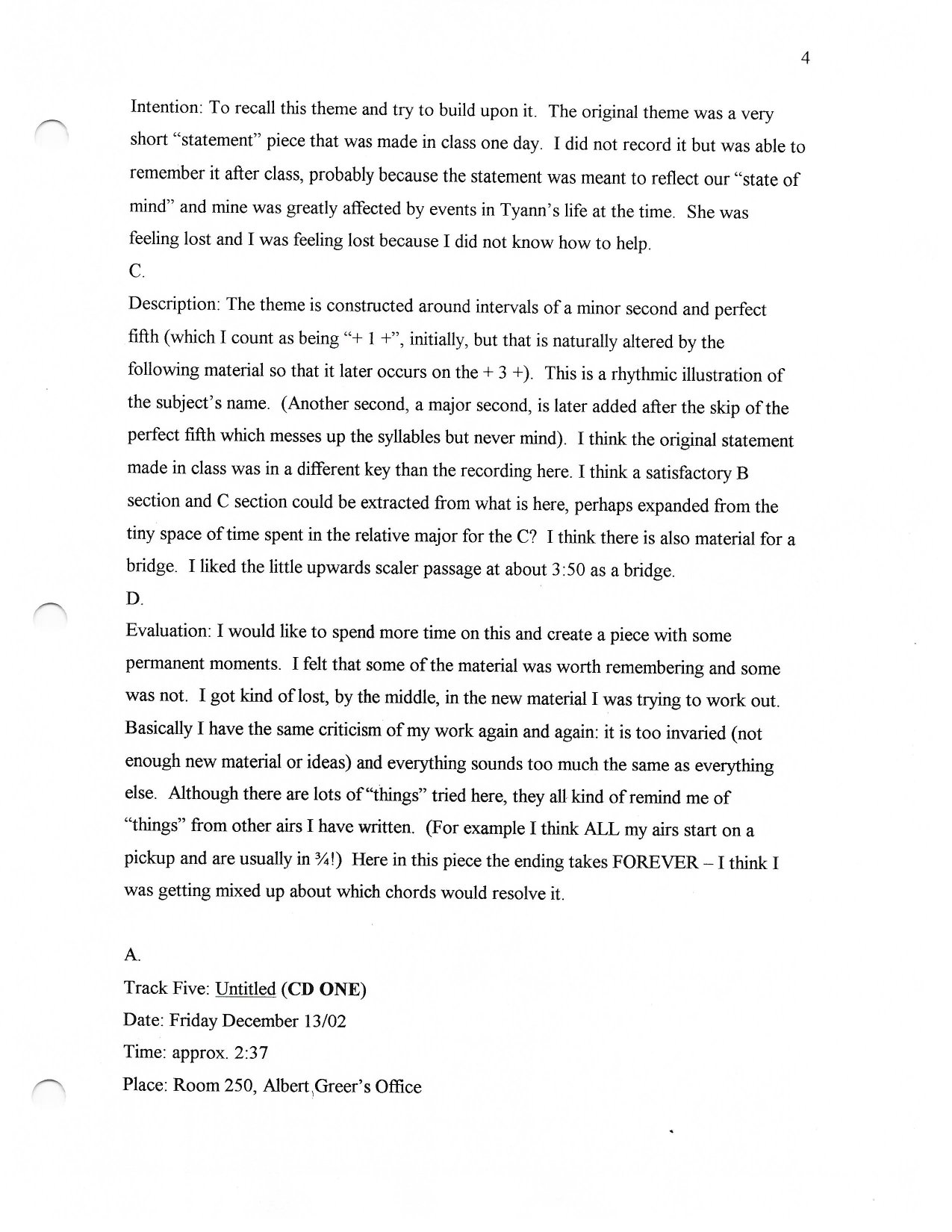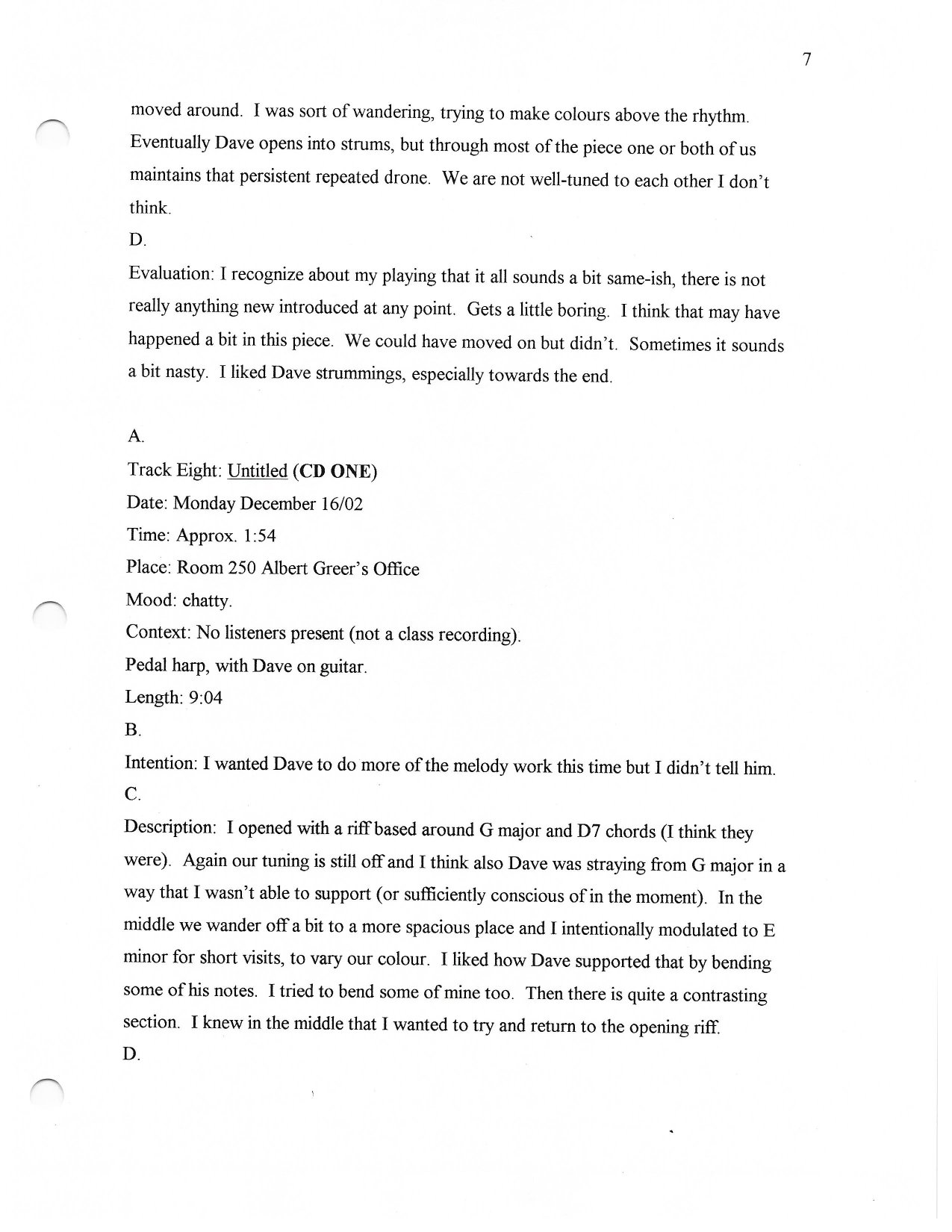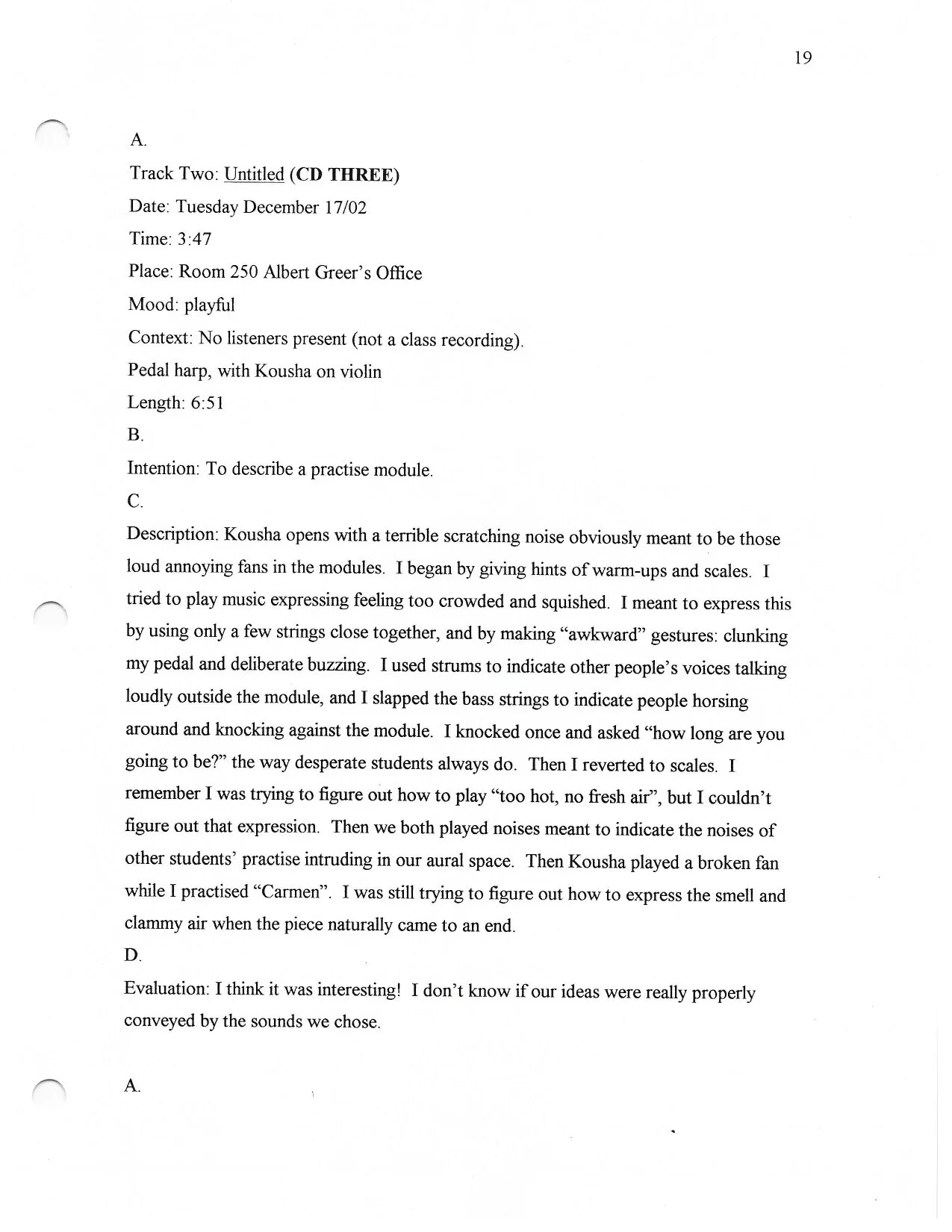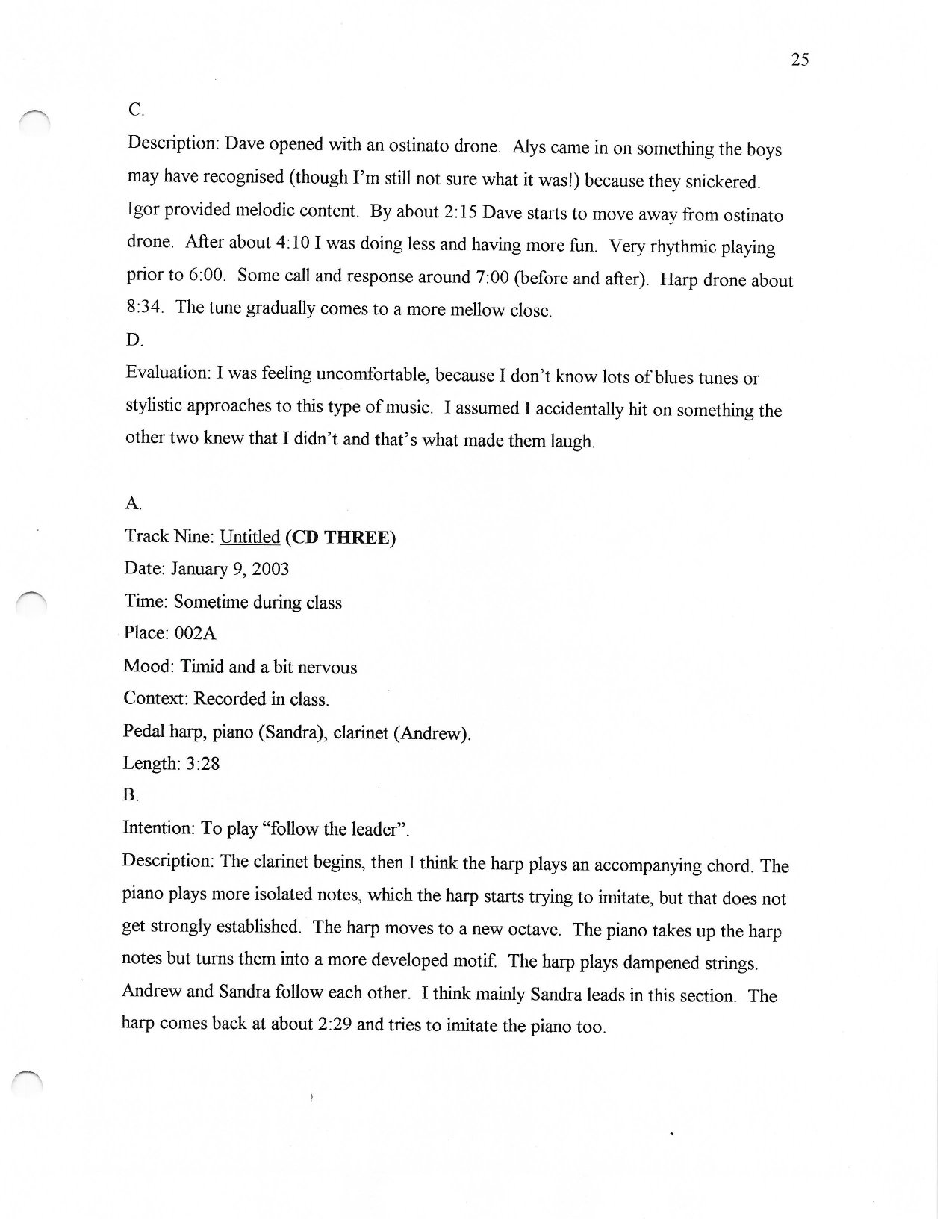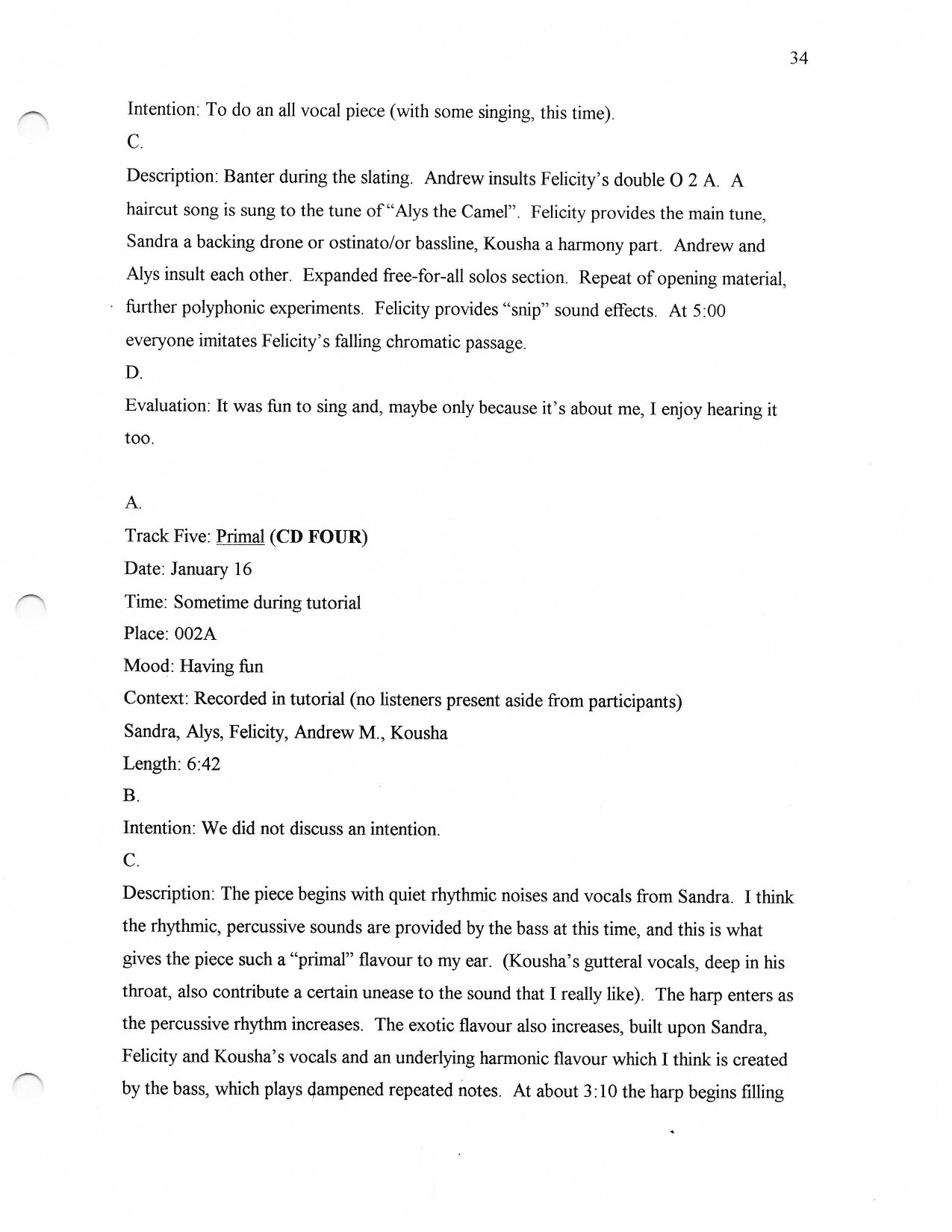Student work—York University: Recording Projects
Questions to which improvising musicians repeatedly return:
*HOW TO BECOME MORE AWARE OF THE ELEMENTS THAT FORM MY MUSICAL STYLE AND CREATIVE PROCESS;
*HOW TO ASSESS MY CREATIVITY; HOW TO KEEP WHAT’S GOOD AND CHANGE WHAT’S NOT.Alys Howe Improv Project & Journal (link here to go straight to one of the best examples of a recording project)
[The audio tracks for Alys’ project will be uploaded shortly.]
Just as keeping a diary can be valuable for being able to look back and remember how you once thought and felt about things, keeping a music journal has been of great value to the students in the improvisation studio courses. Musicians rarely seem to recall how we used to play when we were younger … even a year ago, (and even yesterday)—how it sounded, what compositional ideas and techniques we used—and we lose a sense of the developing line of our musical life. When we cannot recall what we did, we cannot adequately profit from our greatest moments nor learn from our poor choices or faulty executions.
So the students undertake a year-long project in which they document several months of their creative work as well as their responses and reactions to it. By means of the recordings and the written responses the project tracks their encounters with new ideas and new playing situations. You might find that reading these projects is a bit like enjoying a lively autobiography. What you’ll find in these pages are ongoing documentation of the author’s relationship to their own music: playing it, listening to it, and then finding a way to think and write about it.
First you will see the template for their project, to which they are required to adhere. The template is fairly formal, as this helps the student approach their music with less subjectivity we typically bring to listening to our own creative work. Some of these files have the comments I returned as feedback. It is interesting to note that course grades for the improvisation courses were based on all the usual elements (tests, assignments, etc.) but the students’ creative work was never graded. I felt that their music was their own and that it was important not to have them feel that if they played the way I liked, their grade would be higher than if I did not like it. And that afforded me the freedom to comment honestly, with both affirmation and criticism. Following that file, there will be several student recording projects.
The files below give some information on the final recording project which all the improvisation students undertake, regardless of their level. Everyone can do it and each student get a great deal of satisfaction and information about their own process and preferences. The description for the other course, Contemporary Musicianship & Improvisation, is very similar to the one for Piano Improvisation & Contemporary Styles. In terms of the scale of the assignment, the Final Recording Project is almost as demanding as an undergraduate thesis, but engaging with it is an amazing way to really get to know the strengths and weaknesses of your own playing, your own musical thinking and your ability to express what you intend. As you skim through the lengthy text, you’ll get an idea how beneficial it can be to really undertake something like this. You can just use it as a model and do something based on your own ideas and free time. And even if you never do such a project yourself, you might profit from reading what they’ve been asked to consider and to write about. And if you want to do one, you’ll not regret taking it on!
Immediately below is a very brief outline of the project (just the headers from the main project description) and that’s followed by a detailed description of the work to be done. NOTE: As CDs are no longer used for storage, the description is outdated. But I have left it as it was, because the projects conformed to these requirements.








The project of harpist Alys Howe, is a stellar example of an improv recording project. It is hyperlinked just below and her year-long journal is included with it. It is complete in form, straightforward in presentation, scrupulously honest in its subjective self-assessments, and well-written. It is clear that she has acquired an enormous degree of knowledge about the subject of improvisation (philosophy, techniques and practice) and about her own capacity for expression and sharing of ideas and emotions. She really achieved a high degree of theoretical and practical understanding ot the relationship between musicianship and musicality—between the technical aspects of music and creative improvisation. Her project and journal are lengthy but the hyperlinks she has included make for effortless navigation of all the material. Enjoy! Alys Howe Improv Project & Journal
The file below is one example of a project done by a third-year music student taking the piano improv course for the first time. Coming from Indonesia, this kind of university course was quite foreign to her. Erika’s journals can be accessed via the link to the Student Journals pages [Student Journals] so you can see how her experiences with recording parallels with what she was learning in and out of class. A number of other final recording projects also appear on this page.

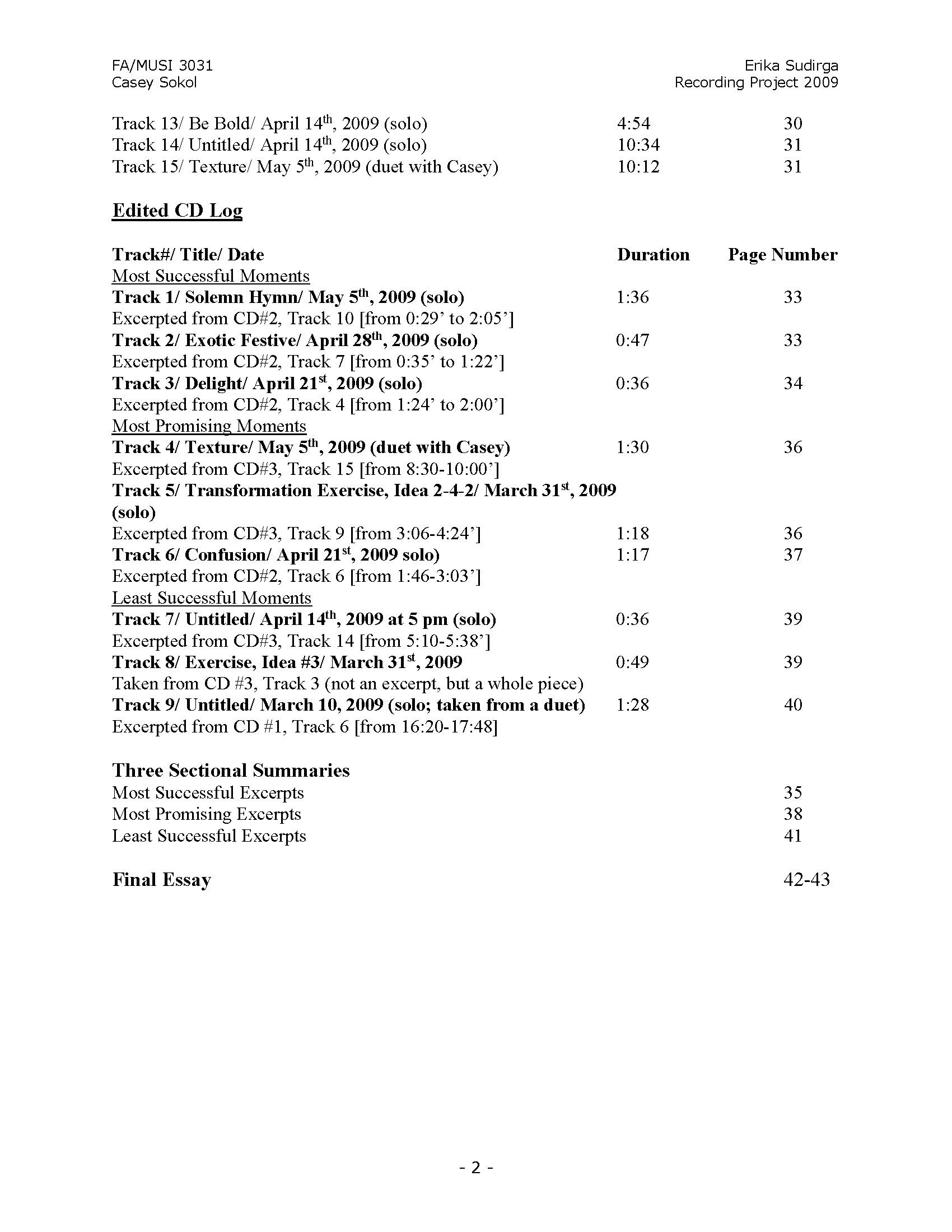

























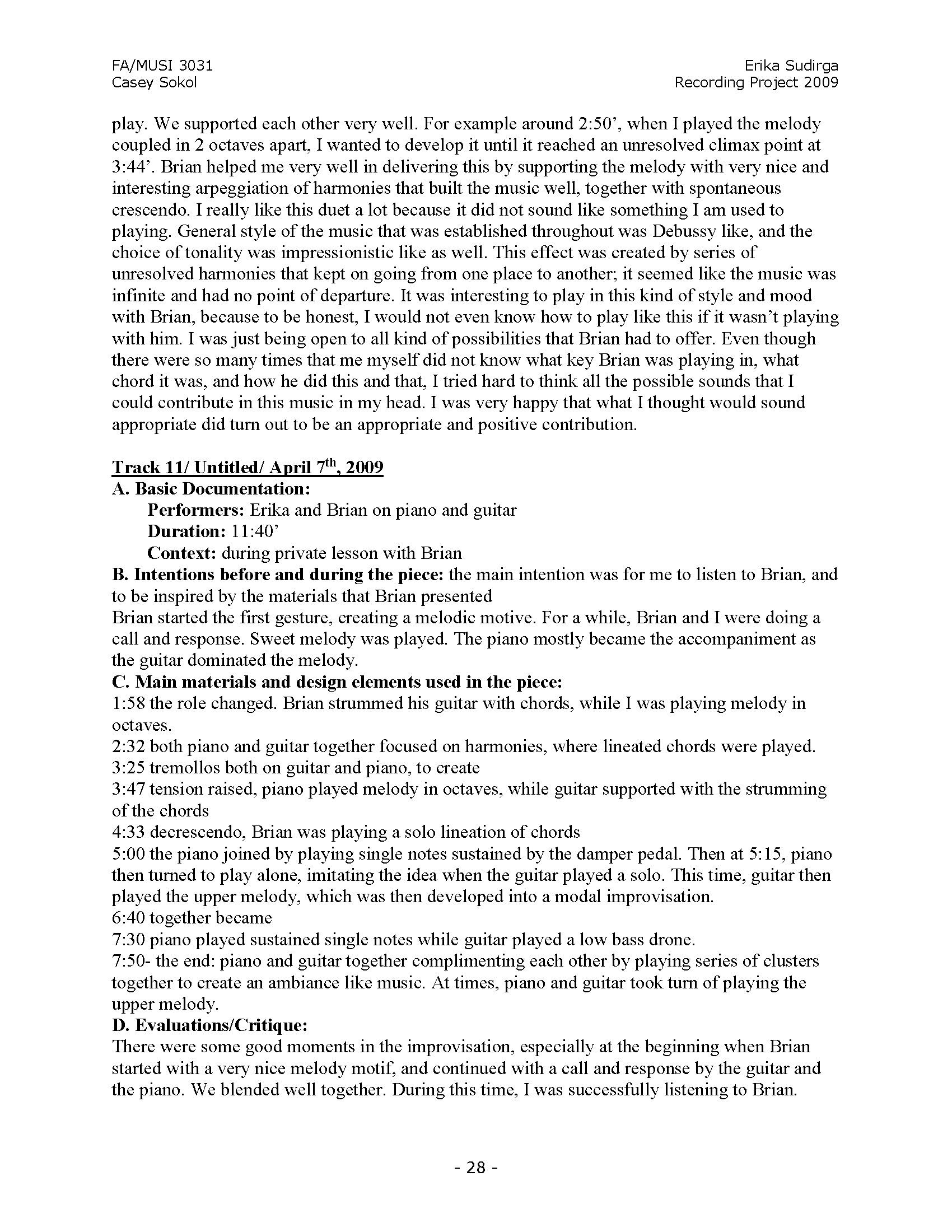




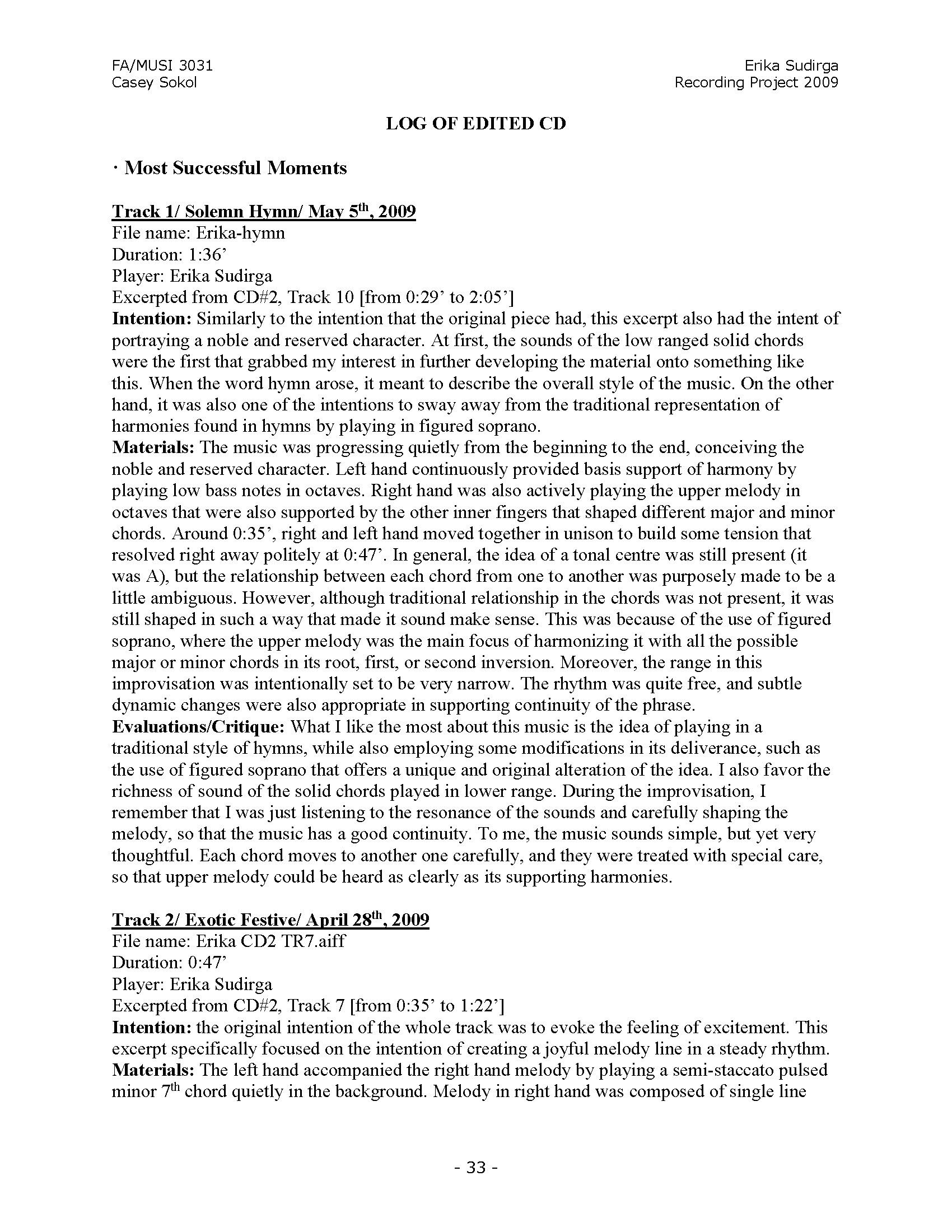








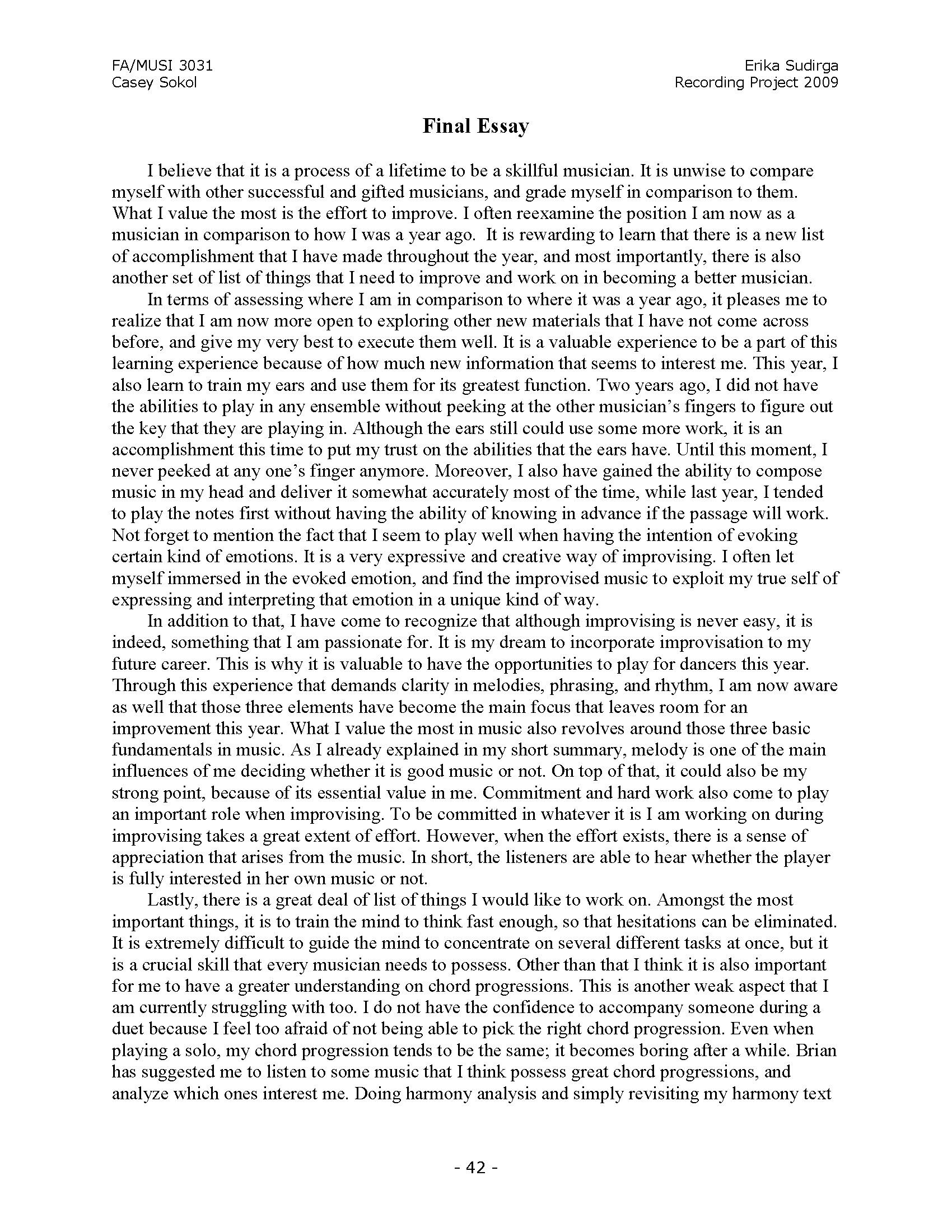

Link to> D.H. Final Recording Project 2008-09
This is another project, also done over the course of several months. On this page, most of the projects look very similar. I used to allow students to invent their own format for their project, and while many of them were stellar in conception, it was much better for them to have a container already prepared. The rationale for that will be included as part of the page on pedagogy.
Below: Final Recording Project of Taylor Abrahamse, 2010-2011
Another recording project, shown below, was done by an insatiably creative student who, among other things, can improvise a coherent, insightful and hysterically funny song with elaborate guitar accompaniment. Each student’s innate talents come flying out in these projects. Especially when they get to the sixth CD, they tend to be somewhat depleted, and they’ll then try anything to get the project finished and submitted. That’s when some of their magic tends to emerge unfettered by the act of trying.













































































































































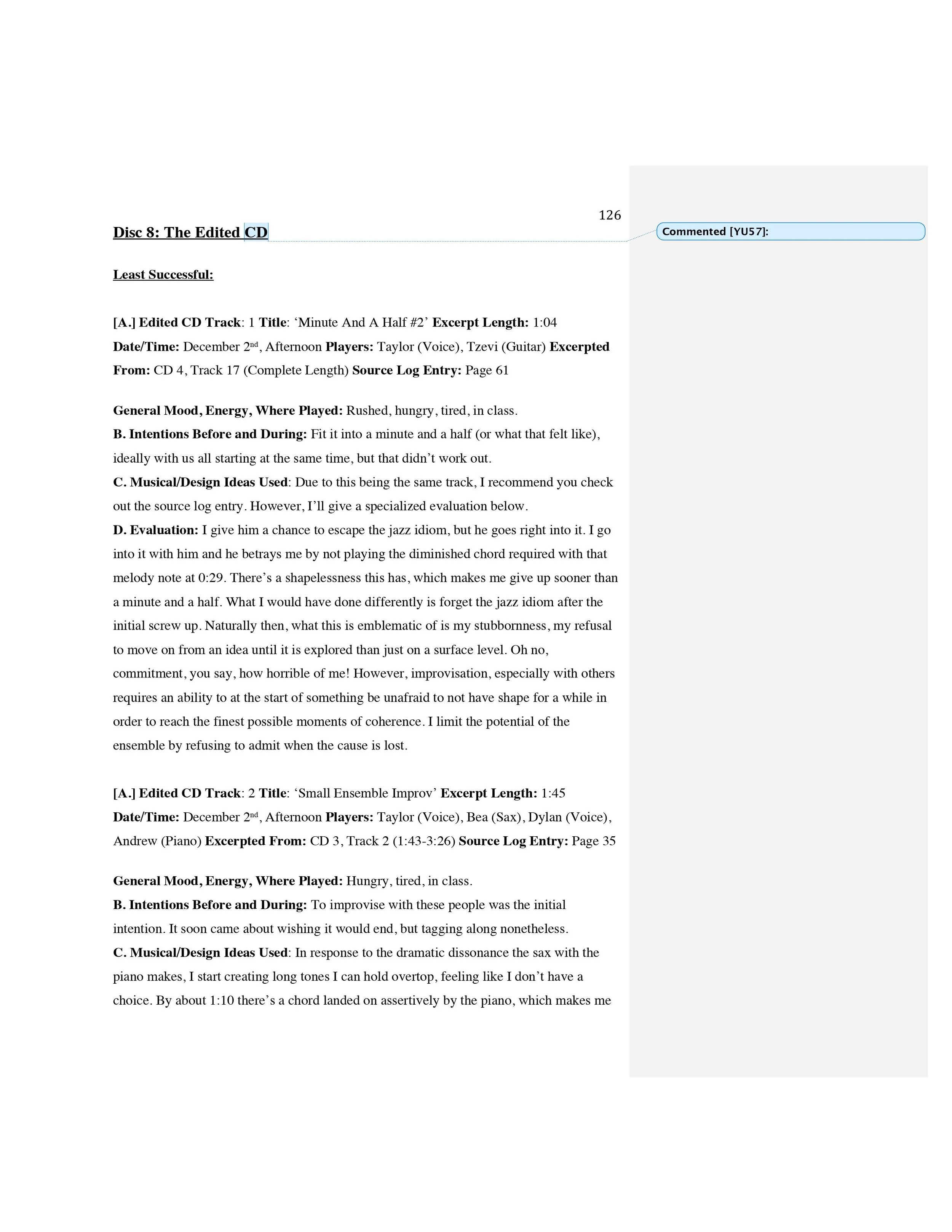

















Victoria diGiovanni—Recording Project
Here is another wonderful recording project.
Hello, World!

























